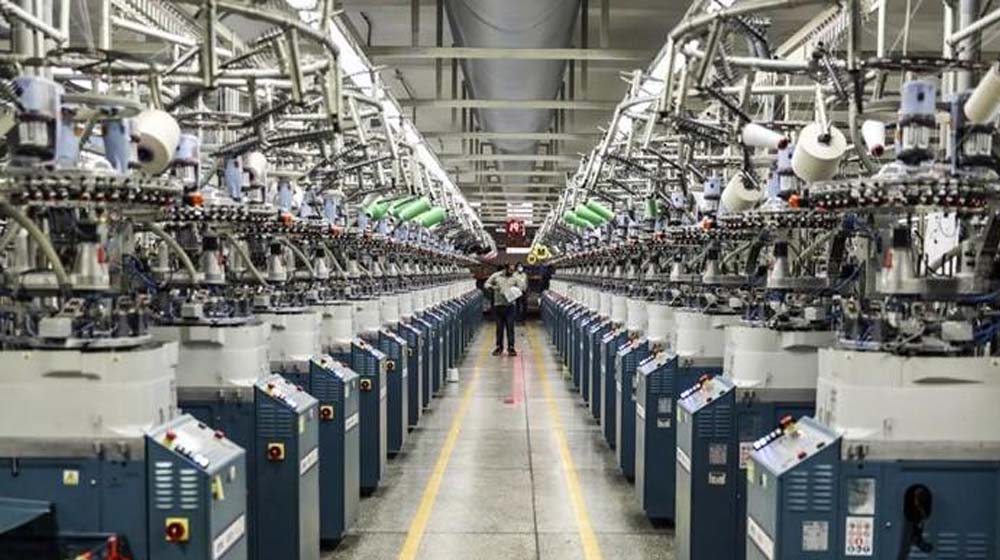The overall output of Large Scale Manufacturing Industries (LSMI) output increased by 7.45 percent during the first eight months (July-February) of 2020-21 as compared to July-February 2019-20, as most of the major manufacturing sectors had posted growths.
The LSMI QIM was recorded at 149.88 points during July-February 2020-21 against 139.49 points during the same period of the preceding year.
According to the provisional Quantum Index Numbers (QIM) of the Large Scale Manufacturing Industries (LSMI), the LSMI output had increased year-on-year (YoY) by 4.85 percent for February 2021 as compared to February 2020 but had decreased month-on-month (MoM) by 4.15 percent as compared to January 2021.
The data on the LSMI that was released by the PBS after it was collected from the Provincial Bureau of Statistics (BOS), the Oil Companies Advisory Council (OCAC), and the Ministry of Industries showed that the OCAC had recorded an MoM negative growth of 6.60 percent in February 2021 against that of January 2021. However, it had increased by 42.66 percent YoY in February 2021 against February 2020.
The data showed that the Ministry of Industry-related sectors had had a decrease of 8.16 percent in February 2021 against January 2021 on an MoM basis; while on a YoY basis, they had registered a growth of 3.16 percent in February 2021 as compared to the same month in 2020.
The PBS data also showed that the LSMI-related data to the BOS MoM had had a growth of 9.82 in February 2021 against that of the previous month; and on a YoY basis, the BOS had had a growth of 4.83 percent in February 2021 against that of February 2020.
According to the PBS data, the production for the following sectors had increased in July-February 2020-21 as compared to July-February 2019-20: textile, food, beverages and tobacco, coke and petroleum products, pharmaceuticals, chemicals, non-metallic mineral products, automobiles, and fertilizers.
The production for the following sectors had decreased in July-February 2020-21 as compared to July-February 2019-20: electronics, leather products, engineering products, paper and board and rubber products, as revealed in the PBS data.
Textile — the top contributing sector to the overall big industry output — had increased by 2.69 percent, food, beverages, and tobacco by 15.75 percent, coke and petroleum products by 7.94 percent, pharmaceuticals by 12.09 percent, chemicals by 10.83 percent, automobiles by 14.66 percent, non-metallic mineral products by 20.77 percent, and paper and fertilizers by 5.66 percent during July-February 2020-21 as compared to the same period last year.
The sectors showing a decline during July-February 2020-21 as compared to July-February 2019-20 included iron and steel products where the output had declined by 1.39 percent, electronics by 24.36 percent, engineering products by 29.62 percent, leather products by 40.49 percent, wood products by 51.30 percent, rubber products by 10.73 percent, and paper and board by 1.07 percent.
Sector-wise, production of 11 items under the Oil Companies Advisory Committee was up by 42.66% year-on-year during February. The 36 items under the Ministry of Industries and Production rose by 3.16%, while 65 items reported by the provincial Bureaus of Statistics were up 4.83%.
LSM represents around 80% of the country’s total manufacturing and accounts for nearly 10.7% of the national output.
Courtesy: Pro Pakistani

